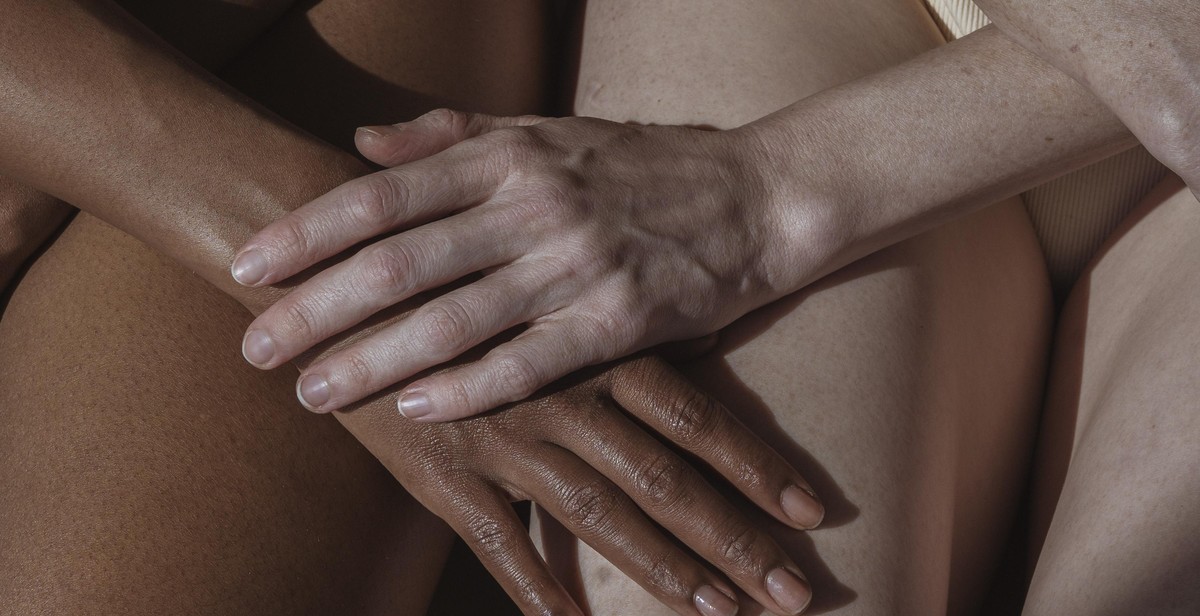Unchain My Heart: Breaking Free from a Controlling Love
Love is a beautiful feeling that can bring immense joy and happiness to our lives. However, sometimes love can become unhealthy and controlling, leaving us feeling trapped and suffocated. As a love and relationships psychology guru with years of experience, I have seen many individuals struggle with controlling partners and the toll it can take on their mental and emotional well-being.
Controlling behavior can manifest in various ways, from constant monitoring of your whereabouts to dictating who you can and cannot talk to. It can leave you feeling powerless and isolated, leading to a loss of self-esteem and confidence. Breaking free from a controlling love can be a daunting task, but it is essential for your own happiness and well-being.
The Signs of a Controlling Love
Recognizing the signs of a controlling love is the first step in breaking free. Some common signs include:
- Jealousy and possessiveness
- Isolating you from friends and family
- Controlling your finances
- Constantly checking up on you
- Dictating your behavior and choices
If you are experiencing any of these signs in your relationship, it may be time to take action and break free from the controlling love that is holding you back.

What is a Controlling Love?
A controlling love is a type of relationship where one partner tries to exert power and control over the other. This can take many forms, including emotional manipulation, isolation from friends and family, financial control, and even physical abuse.
Controlling behavior can be subtle or overt, but it is always harmful to the person on the receiving end. It can cause feelings of anxiety, low self-esteem, and even depression. In some cases, it can lead to physical harm and even death.
Signs of a Controlling Love
There are many signs that your partner may be trying to control you. Some of the most common include:
- Jealousy and possessiveness
- Constant criticism and put-downs
- Isolation from friends and family
- Monitoring your phone calls, texts, and emails
- Controlling your finances
- Using threats or intimidation
- Physical violence
If you are experiencing any of these signs, it is important to seek help. You do not have to suffer in silence.
The Effects of a Controlling Love
Being in a controlling love can have serious consequences for your mental and physical health. It can lead to feelings of anxiety, depression, and low self-esteem. It can also cause physical harm, including injuries and even death.
Controlling behavior can also have an impact on your other relationships. It can lead to isolation from friends and family, making it difficult to seek support when you need it.
Breaking Free from a Controlling Love
If you are in a controlling love, it is important to seek help. This can include talking to a trusted friend or family member, seeking counseling or therapy, and even contacting a domestic violence hotline.
Breaking free from a controlling love can be difficult, but it is possible. It may require you to take legal action, such as obtaining a restraining order or filing for divorce. It may also require you to seek support from a therapist or support group.
The most important thing is to remember that you are not alone. There are people who can help you break free from a controlling love and start living a life free from abuse and fear.

Signs of a Controlling Relationship
A controlling relationship can be emotionally and mentally draining, leaving you feeling trapped and helpless. It’s important to recognize the signs of a controlling partner early on to avoid further damage to yourself and the relationship. Here are five common signs of a controlling relationship:
Sign #1: Isolation and Separation
A controlling partner may try to isolate you from your friends and family, making you feel like you have no one else to turn to besides them. They may also discourage you from pursuing your hobbies or interests, making you feel like you have to prioritize their needs over your own. This kind of behavior can lead to feelings of loneliness, depression, and anxiety.
Sign #2: Lack of Trust and Jealousy
A controlling partner may become overly jealous and possessive, accusing you of cheating or flirting with others without any evidence to support their claims. They may also check your phone, email, or social media accounts without your permission, violating your privacy and trust. This kind of behavior can lead to feelings of guilt, shame, and mistrust.
Sign #3: Constant Criticism and Blame
A controlling partner may criticize and belittle you constantly, making you feel like you can’t do anything right. They may also blame you for their problems or mistakes, making you feel responsible for their behavior. This kind of behavior can lead to feelings of low self-esteem, self-doubt, and self-blame.
Sign #4: Manipulation and Gaslighting
A controlling partner may manipulate and gaslight you, making you feel like you’re crazy or imagining things. They may twist your words or use your vulnerabilities against you, making you feel like you’re the one at fault. This kind of behavior can lead to feelings of confusion, doubt, and fear.
Sign #5: Making Decisions for You
A controlling partner may make decisions for you without your input or consent, making you feel like you have no say in your own life. They may also pressure you into doing things you’re not comfortable with, making you feel like you have to comply with their wishes. This kind of behavior can lead to feelings of resentment, anger, and powerlessness.
Why Do People Stay in Controlling Relationships?
As a love and relationships psychology guru, I have seen countless individuals who are stuck in controlling relationships. It is understandable to wonder why someone would stay in such a situation. However, the reasons are complex and vary from person to person.
Fear of Being Alone
One reason people stay in controlling relationships is the fear of being alone. They may feel that they cannot survive without their partner, and the thought of being single is unbearable. This fear may be intensified if the controlling partner has isolated them from friends and family, making them feel like they have no one else to turn to.
Low Self-Esteem
Another reason is low self-esteem. The controlling partner may have convinced them that they are not good enough and that no one else would want them. They may feel like they are lucky to have anyone at all, even if that person is controlling and abusive.
Hope for Change
Many people stay in controlling relationships because they hope that their partner will change. They may believe that if they just do everything their partner wants, they will eventually be treated better. Unfortunately, this rarely happens, and the cycle of control and abuse continues.
Financial Dependence
Financial dependence is another reason people stay in controlling relationships. The controlling partner may control the finances, making it difficult for the other person to leave. They may fear that they cannot support themselves without their partner’s income.
Belief in Love
Lastly, some people stay in controlling relationships because they believe in love. They may feel that their partner truly loves them and that the controlling behavior is a result of their partner’s love and concern for them. They may also believe that love conquers all and that their love can change their partner.
- Conclusion: Understanding why people stay in controlling relationships is crucial in helping them break free. By recognizing and addressing these underlying issues, individuals can begin to take the necessary steps towards a healthier and happier life.
Breaking Free from a Controlling Love
Being in a relationship with a controlling partner can be suffocating and draining. It can feel like you are trapped and unable to break free, but it is possible to unchain your heart and take control of your life. Here are some steps that can help you break free from a controlling love:
Step #1: Acknowledge the Problem
The first step in breaking free from a controlling love is to acknowledge that there is a problem. You need to recognize that your partner’s behavior is not normal or acceptable. It can be hard to admit that you are in a controlling relationship, but facing the truth is the first step towards freedom.
Step #2: Set Boundaries
Setting boundaries is crucial when dealing with a controlling partner. You need to establish clear boundaries and communicate them to your partner. Boundaries can include things like not allowing your partner to dictate who you can see or talk to, or not allowing them to control your finances. Stick to your boundaries and enforce them firmly.
Step #3: Seek Support
Breaking free from a controlling love can be challenging, and you don’t have to do it alone. Seek support from friends, family, or a therapist. Having someone to talk to and lean on can make a big difference in your journey towards freedom.
Step #4: Build Self-Esteem and Confidence
Controlling partners often try to break down your self-esteem and confidence, making it harder for you to leave the relationship. Focus on building your self-esteem and confidence by doing things that make you feel good about yourself. This could be taking up a new hobby, connecting with old friends, or practicing self-care.
Step #5: End the Relationship
If your partner is unwilling to change and continues to be controlling, it may be time to end the relationship. This can be a difficult and painful decision, but it is important to prioritize your well-being and happiness. Remember that you deserve to be in a healthy and loving relationship.
Breaking free from a controlling love can be a long and challenging journey, but it is possible. Remember to take things one step at a time and prioritize your well-being and happiness.
Moving On and Healing
Breaking free from a controlling love can be a challenging and painful process. However, it’s important to remember that moving on and healing is possible with time and effort. Here are some tips to help you on your journey:
1. Cut off all contact
It’s important to cut off all contact with your controlling ex-partner. This means unfollowing them on social media, deleting their number, and avoiding places where you might run into them. This will help you to avoid any temptation to reach out to them and will also give you space to heal.
2. Seek support
Don’t be afraid to reach out to friends, family, or a therapist for support. It’s important to have a support system to help you through this difficult time and to provide you with a safe space to express your emotions.
3. Practice self-care
Take care of yourself physically, emotionally, and mentally. This includes eating well, exercising, getting enough sleep, and engaging in activities that bring you joy and relaxation.
4. Reflect on the relationship
Reflect on the relationship and what you learned from it. This will help you to grow and move forward. It’s important to acknowledge any red flags or warning signs that you may have ignored in the relationship.
5. Set boundaries
Set healthy boundaries for future relationships. This means knowing your worth and what you will and won’t tolerate in a relationship. It’s important to communicate these boundaries to future partners.
Remember, healing takes time and everyone’s journey is different. Be patient with yourself and know that you are capable of moving on and finding happiness again.
